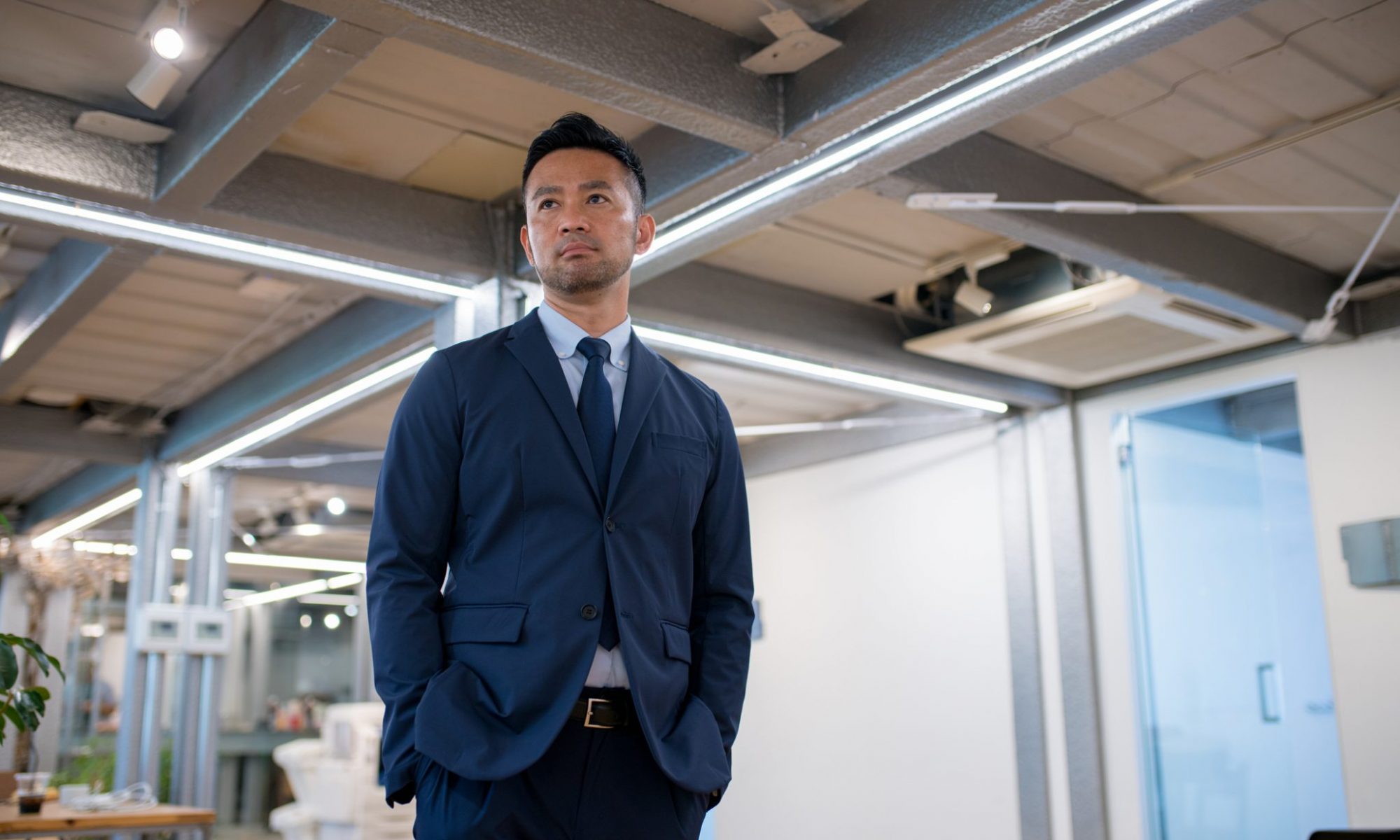The second part of Business Impact‘s synopsis of a panel event, co-hosted by BGA earlier this year, on how sustainability can be better integrated into the DNA of higher education. By Daniel Kirkland and Ellen Buchan
Following the topics covered in the first part of this account (which you can read here) the panel proceeded to discuss the limits of desirability and possibility, in terms of embedding sustainability effectively across a range of courses and where its focus might lie as a business concern over the next three to four years.
SDA Bocconi’s Pogutz explained that there are two possible paths that could be taken to embed sustainability in organisations. One is to appoint a technical professional – the chief sustainability officer – and the other is developing leaders with sustainability mindsets through MBA programmes.
‘The big challenge is that organisational structures are still not metabolising that, so they go back and ask for a very vertical style of competence. So the integration would be mandatory, but not for becoming a sustainability manager. That’s even more complex as a challenge, at least for us in Italy,’ Pogutz said.
St.Gallen’s Walls added: ‘I would push that concept even further. At Business Schools we have a responsibility and an obligation to teach students not only about sustainability, but also about values-based management in general.
‘How we’re going to implement that is going to be a different question, but I feel that we’ve done a disservice to our students; we’ve created this kind of MBA person that goes out and focuses on certain things when they go out into the business and, as a result, we’re now facing some global challenges, like climate change, social unrest, and all kinds of biodiversity loss.
‘Business are not able to cope with these challenges right now. I think we need to take a deep and critical look at ourselves as Business Schools and ask what is it that we should be providing to students. [Sustainability] has to be the oil for everything, it can’t just be one cog. Otherwise we won’t solve the problem.’
Understanding ourselves as Business Schools
Zollo responded to this challenge, adding: ‘The entire challenge can be framed in terms of understanding ourselves as Business Schools. We’re having the same type of challenge that we’re asking businesses to face.
‘They have to rethink their purpose, in terms of creating value for stakeholders and giving up on the idea of privacy to monetise stakeholders and shareholders. We also have to rethink.
‘First of all, content-wise, there is no logic in adding one more course, or one more module. There is no question about that once we have decided that we want to be part of the solution – to contribute and shift the world towards a sustainable society.
‘Then the question is [how to go about] redesigning all the programmes, including the MBA, starting from those assumptions – i.e. this is the theory of the firm that we’re going to teach, and every single course, whether it’s finance, marketing, strategy, organisation, is going to be taught on the basis of that theory of the firm, which says “your role as managers is to create that value for stakeholders, period”. There is no choice anymore.’
Taticchi responded by outlining his own belief that it is impossible to teach different modules without integrating sustainability within them.
‘I think it’s very important to create the right narrative,’ he said. ‘Sustainability should not be a separate module, otherwise it is perceived as something different from “real” business.
‘Sustainability is about smart business; it’s about exploring opportunities; and it’s about exploring management risks. I think it’s important that students realise this at the beginning of their business education so that when they study strategy or operations they have the right mindset for that.’
The purpose of the MBA
Crane outlined a pressing challenge: the way Business Schools market an MBA is often on salary uplift and the Financial Times ranks programmes based on this criteria, so a rethink into how Business School programmes are marketed and evaluated is needed.
‘We need to transform the way that we think about the purpose of an MBA programme before that happens,’ he said. ‘That will only happen if the whole ranking changes, if the way we market programmes changes, and if the business model of Business Schools changes.’
Crane went on to describe a ‘sense of isolation’ in Business Schools, and the difficulty in encouraging business students to go outside a Business School and talk to people in other fields, such as environmental science, sociology, and developmental studies.
‘They don’t want to know,’ he said. ‘They want to talk about finance, they want to talk about marketing in the safe cocoon of the Business School because they are there to get an increase in their salary. The challenge we have is breaking out of our own silo.
‘We have a structural problem; we are pulling up the drawbridge not putting it down. You need to create an open institution. As Business Schools have emerged, they aren’t the model that we need in order to tackle the problems that we want to solve.’
The role of accreditation bodies
With that in mind, do accreditation organisations also have a role in pushing for more of a focus on sustainability?
‘If you want Schools to focus on things such as stakeholder capitalism or the climate emergency, you can ask them to do so, but ultimately you have to require them to do it, to get the kind of change necessary,’ said Crane.
‘That’s where accreditation comes in,’ he added. BGA and others are starting to push quite strongly at this and it is a requirement to some extent for accreditation that’s getting stronger all the time, but [in terms of transformation], I don’t think we are there yet in the accreditation system.’
Robert outlined her views that it’s useful for Business Schools to have rules to follow that help them know what to do: ‘Not all Business Schools are accredited but the top ones are. Accreditation has a really huge impact because Business Schools which aren’t accredited follow the ones that are – and the students know this as well. We want to have the accreditation bodies take sustainability into consideration more and more. The accreditation has to take this big chance in order to make a difference.’
Walls agreed with this sentiment: ‘You need the student body to push and you need the accreditation bodies to pull. I think that something which is even more crucial is how Business Schools stay relevant. Not only relevant to business and the global challenges we face but also relevant to new students coming in and for future students who are now high schoolers and will be entering university questioning why they would they go to a Business School if there is nothing there about sustainability or ethics.
‘It’s about Business Schools looking at their long-term survival strategy, in the same way that businesses do. The external environment is changing, we can see that. Business Schools need to respond if they want to be there.’
Taticchi was keen to reiterate what the role of an accreditation body is: ‘It’s not just about setting requirements and making sure that Business Schools meet those requirements.
‘It’s also about creating a best practice and helping Schools improve on what they do. There is an advisory board with accreditation bodies which is extremely important. That’s why sustainability should be part of the conversation for accreditation bodies.’
Iliev closed this part of the debate by adding: ‘Accreditation is a consultancy process. We have created an inventory of the key terms that need to be implemented across all the programmes, including sustainability terms. An accreditation, such as BGA, can provide the template for Schools that don’t have the expertise in sustainability.’
The role of Business School rankings
Having discussed the role of accreditation in taking the sustainability agenda forward, the panel moved on to discuss ratings and rankings – which they were challenged to consider in terms of a help or hindrance to Business Schools when recruiting students.
‘I think that there is a difference between ratings and rankings’ said Robert. ‘We talk a lot about rankings and not so much about ratings,’ she continued. ‘For the rankings, obviously it’s a major thing for Business Schools. Everyone wants to be ranked number one but that is only one place, so they at least want to be well ranked. That’s what Schools use to make sure that students are going to pick them, and that the activities in the Business School will fit what they need to move up the rankings ladder, which is an incentive. But we feel, as students, it is also good to have another tool which can be used, because once you are ‘ranked’ you either celebrate or you are disappointed. The ratings system has another purpose because you can do something about it.’ She explained that this was why oikos International launched a positive impact rating, which is about evaluating and assessing the positive impact Business Schools have on society and students.
Robert said: ‘In the positive impact rating we have different dimensions, like educating and engaging as well as governance, culture, programmes, learning methods, student engagement, the institution as a role model, and public engagement. Students are enabled to rate their Schools in terms of positive impact and, from there, the Schools have the data to know what the students think of their institution’s positive impact.
‘The goal is to encourage stakeholder engagement and everyone to work together to bring the Schools to another level, in terms of positive impact. There were no Business Schools in this first edition [of the rating] that reached the top level in terms of learning methods, in terms of institutions as role models, and in terms of engagement.
‘We believe in Business Schools and we want them to move on and have positive impact. I think it’s important that the rankings take into consideration the positive impact of Business Schools, because in some ways this is where we need to go and in this sector we are trying to move ratings and rankings in that direction.’
Other panellists were keen to discuss rankings and what could be improved in their methodologies to support sustainability.
Crane was pulling no punches. ‘I think rankings like that of the Financial Times have had the most negative, pernicious influence on the greater development of Business Schools as you can imagine, in terms of dealing with this issue,’ he said. ‘It focuses on all the wrong things. I would say that in terms of getting Schools to focus on sustainability, responsible business and positive impact, its finally got a bit of sustainability in it, like 2%. But the whole salary uplift thing overwhelms this so that the overall effect is minimal.’
But he added that the biggest problem with rankings are how Business Schools respond to them: ‘Schools are very good at managing the rankings,’ he said. ‘The trouble is that rankings are [often] based on students’ responses. The way that Schools react to that is to try and influence the student responses, not influence what they do in their Business School.
‘So rather than focusing on their educational responsibilities, they will be much better at promoting what they are doing to the student body and they will be much better at connecting with their alumni and telling lots of positive stories and getting them to say lots of positive things about them.
‘For a relatively small School, the idea that you could be the top of a sustainability ranking is like gold dust. Your dean will listen to you if you can say we can get you from number 20, to number one if you do X, Y and Z. You might never get to the top of the Financial Times ranking, but you can become number one in another ranking.’
Imperial’s Zollo agreed, stating: ‘I think it might be the time to really think about perspectives in creating the rankings. So far rankings have taken the perspective of the student: what do they want?
‘It’s about time that we took the perspective of “what kind of MBA does society need?” and “what kind of MBA elements do we need to forge?”
‘That should be the overarching criteria to create the various metrics on which Business Schools have to compete.’
St.Gallen’s Walls put forward her fear that Schools might, in fact, dismiss ‘smaller’ rankings because they will be perceived as ‘less important’ in time-pressured and political university environments.
‘This is why it would be great if the larger rankings bodies focused on sustainability, because not everyone pays attention to specialist rankings,’ Walls said.
Stakeholder relations
Building on this, Pogutz explained that one point missing in the sustainability agenda is the relationships that Business Schools have with their various stakeholder groups when it comes to prioritising their competencies.
‘Climate change is urgent,’ Pogutz said, ‘and we may not have time to repeal the effect of it. It will take a lot more time [than the nine to 10 years we have]’ before pointing out that sustainability is multidisciplinary.
‘How many of us have ever heard of anyone from natural sciences speaking about climate change? If you take all of the social dimensions of it [into consideration], such as human rights – who are the experts in human rights in Business Schools and how can we build pathways in Business Schools in this type of topic?
‘We have pressure because the agenda is there and we have a long way to go. There is a huge cultural transformation.’
Inspiring cultural change
As the debate drew to a close, the panellists agreed that while issues around rankings and course design were looming hurdles in developing a sustainability agenda across Business Schools, accreditations and research – such as those offered by BGA – would support Schools in embedding sustainability in business education.
The biggest challenge identified, however, was implementing a shift in the culture and internal politics of Business Schools and the wider universities of which they are a part – and measuring the impact they are having in terms of this culture shift, and the wider sustainability and climate change emergency.
The panel agreed that the first step would be collaborating to prioritise this pressing issue and communicate it to students, employers, and external and internal stakeholders before it’s too late.
Held in partnership between AMBA & BGA and Imperial College Business School, ‘Integrating sustainability into business education’ took place at the London institution’s campus in February 2020.
The panel for the event consisted of: Andrew Crane, Director of the Centre for Business, Organisations and Society, University of Bath; Clémentine Robert, President, Oikos International; George Iliev, Director of Strategic Projects and Innovation; Accreditation and China Director, AMBA & BGA; Judith Walls, Chair for Sustainability Management, University of St.Gallen; Maurizio Zollo, Head of the Department of Management, Imperial College Business School; Paolo Taticchi, Director of the Weekend MBA and Global Online MBA, Imperial College Business School; Stefano Pogutz, Tenured Faculty of Management, Department of Management and Technology, SDA Bocconi. The panel moderator was Andrew Jack, Global Education Editor, Financial Times.
This article was originally published in Business Impact magazine, issue #4 (June 2020).
























